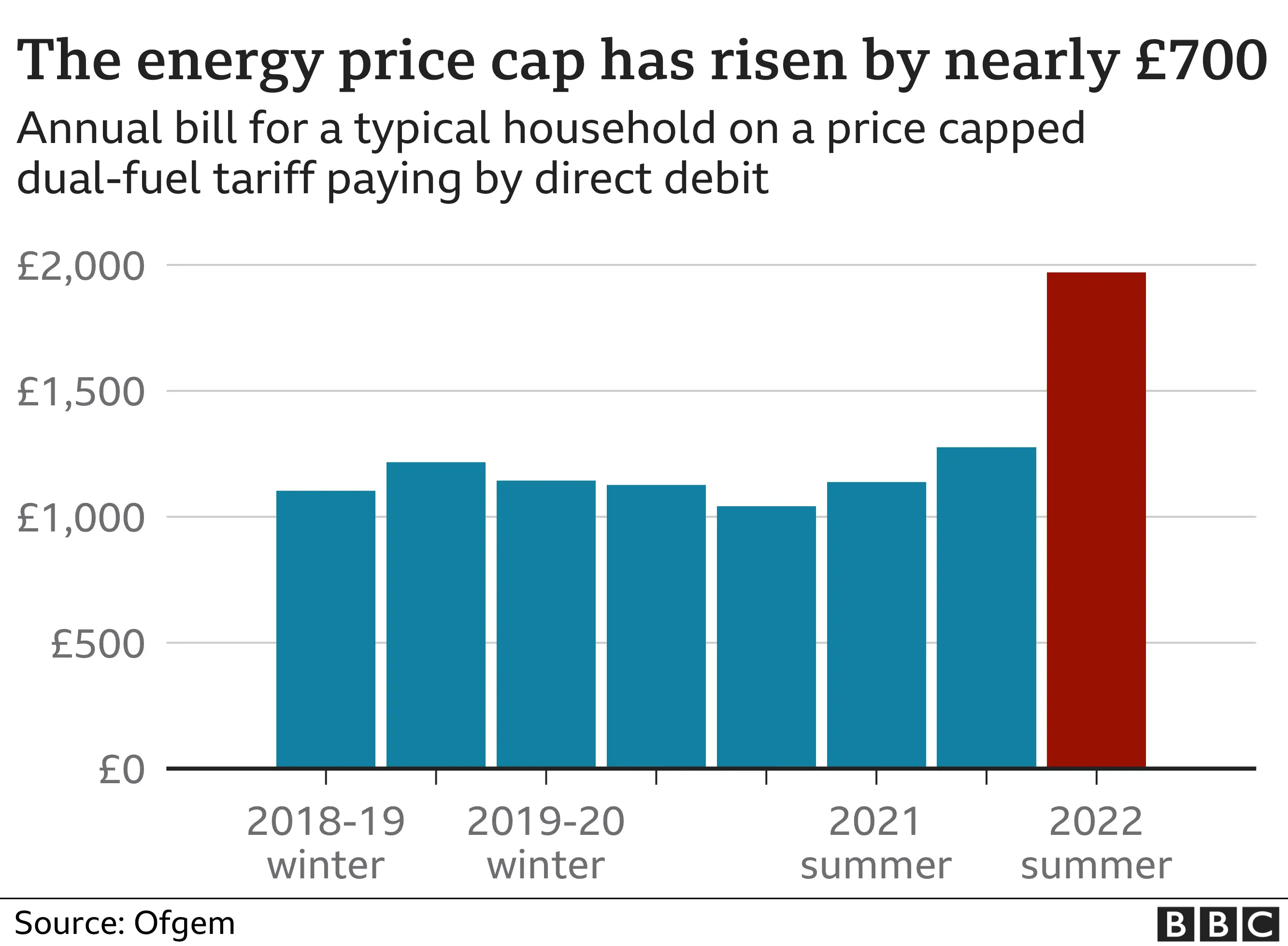Energy bills to rise more than predicted, says Ofgem boss
 Getty Images
Getty ImagesDomestic energy bills will rise faster this winter than previously forecast by the energy regulator Ofgem, its chief executive has admitted to MPs.
Jonathan Brearley said in late May that a typical household would pay £800 a year more from October.
But, while giving evidence to MPs, he said it was "clear" that estimate for winter bills now looked too low.
The original figure was used by ministers when deciding how much to pay in direct assistance this winter.
One industry analyst has predicted a rise of more than £1,200 a year in October. Cornwall Insight said that the typical domestic customer was likely to pay £3,244 a year from October, then £3,363 a year from January.
The typical bill at present is about £2,000 a year. In itself, this was a rise of £700 a year in April, compared with the previous six months.

About 23 million households in England, Wales and Scotland have their bills governed by the energy price cap. That limits the amount suppliers can charge per unit of energy, and the standing charge, and is set every six months. From this winter, it is expected that this will change to a three-month period.
Mr Brearley said in May that a typical household gas and electricity bill on the price cap would increase to £2,800 a year, owing to continued volatility in gas prices.
But on Monday, he told MPs on the Public Accounts Committee that it was "clear", given the current "pricing dynamics" and the ongoing war in Ukraine, that "prices are looking higher than they did when we made that estimate".
However, he would not be drawn on exactly how much higher bills would be, ahead of the official announcement in the coming weeks.
Starting later this week, direct payments will be made to low-income households to help with the cost of living and covering energy bills.
Sarah Munby, permanent secretary at the Department for Business, said ministers would "keep a close eye" on whether this policy should go further if bills rose higher than expected.
Ofgem also told MPs that it had found issues with direct debit demands from suppliers, during a review following accusations that companies increased customers' direct debit payments by "more than is necessary".
More details will be announced in the coming days.
Criticism of regulation
Soaring wholesale prices meant around 30 suppliers have collapsed during the crisis that has hit the sector. A total of 26 remain in the market.
About 2.4 million customers were automatically moved to a rival company when their own supplier folded. Typically, according to Citizens Advice, they had to pay an extra £30 a month for the duration of their original contract, as they were shifted to a more expensive tariff.
In addition, the cost of these failures totalled £2.7bn - a tab which was spread across all billpayers in Britain at a cost of about £94 each, not just those of the failed companies. This is before taking into account the potentially multi-billion charge that households could face due to the collapse of Bulb Energy, which is in special administration.
Last month, it was announced that Hayden Wood, who was the company's boss and co-founder, would leave at the end of July.
In June, the National Audit Office (NAO) said Ofgem had allowed an energy market to develop that was vulnerable to large shocks.
The NAO said that Ofgem had decided on a "low bar" approach for allowing new domestic energy suppliers into the market to encourage competition and choice for customers after the market had been dominated by six big companies.

Have you been affected by any of the issues raised here? Please get in touch by emailing: [email protected].
Please include a contact number if you are willing to speak to a BBC journalist. You can also get in touch in the following ways:
- WhatsApp: +44 7756 165803
- Tweet: @BBC_HaveYourSay
- Upload your pictures/video here
- Or fill out the form below
- Please read our terms & conditions and privacy policy
If you are reading this page and can't see the form you will need to visit the mobile version of the BBC website to submit your question or comment or you can email us at [email protected]. Please include your name, age and location with any submission.
